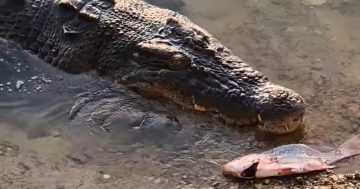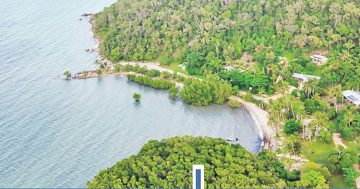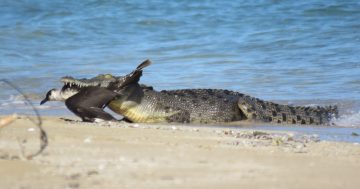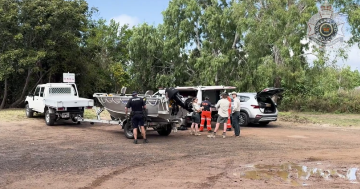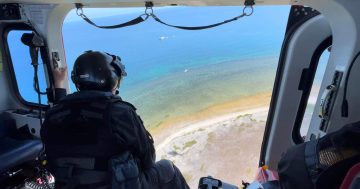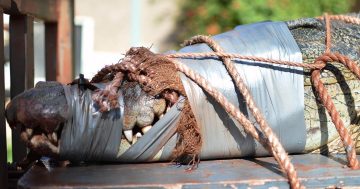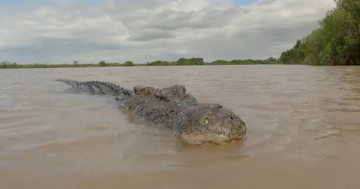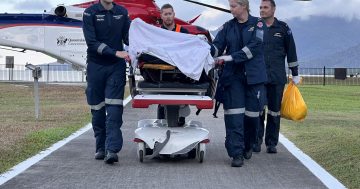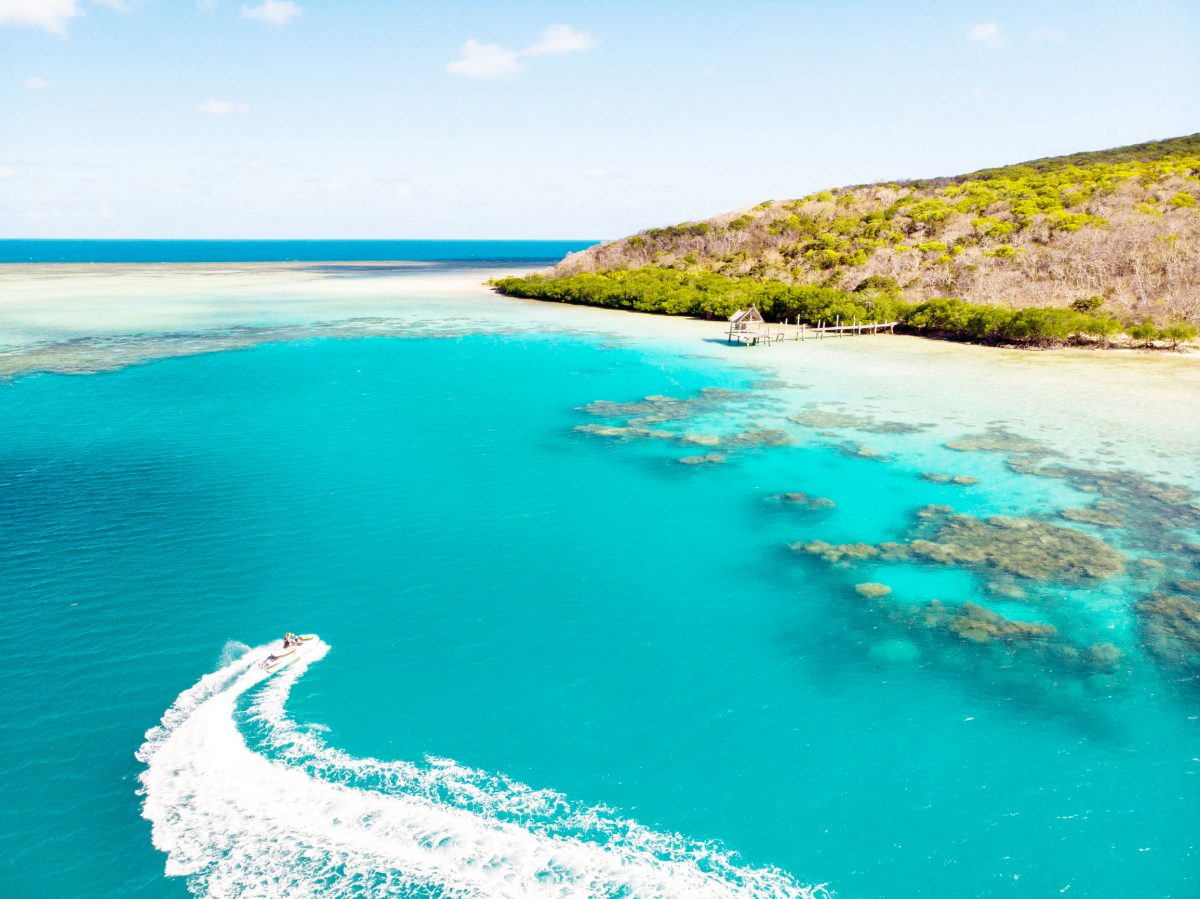
Haggerstone Island has a luxury resort and boasts some great snorkelling spots on the reef.
THE tourist who was bitten by a crocodile on Saturday has released a statement from Cairns Hospital.
Marc McGowan, 51, says he believes he was bitten by a mid-sized croc while 40km off the Cape York coast.
This is his statement in full:
On Saturday, 27 May after a morning out fishing, we anchored at the Charles Hardy Islands for lunch and a quick snorkel in crystal clear waters approx. 40km off the Cape York Coast. I was snorkelling with my wife and a group of friends and while checking out some coral and fish and talking to a fellow snorkeller, I was attacked from behind by a saltwater crocodile which got its jaws around my head.
I thought it was a shark but when I reached up I realised it was a crocodile. I was able to lever its jaws open just far enough to get my head out.
The crocodile then attempted to attack me a second time, but I managed to push it away with my right hand, which was then bitten by the croc.
I was able to escape the crocodile’s grip once again and swim to the safety of the boat which was coming after they heard our screams for help.
As this incident occurred so suddenly, I was unable to estimate the crocodile’s exact size, but believe it may have been a juvenile (2-3m long).
The vessel’s crew rushed me to Haggerstone Island approximately 45 minutes away where I was administered first aid en-route by my mate who I was snorkelling with. He is a fireman so he knew what he was doing. He bandaged me up and also had to give me antibiotic shots to prevent any infection.
An emergency helicopter arrived to transport me to Thursday Island Hospital for treatment, where I was assessed; and I was later taken to Cairns Hospital for further treatment to my scalp lacerations and puncture wounds on my head and hand.
I live on the Gold Coast and am a keen surfer and diver, and understand that when you enter the marine environment, you are entering territory that belongs to potentially dangerous animals, such as sharks and crocodiles.
I was simply in the wrong place, at the wrong time.
I’m just grateful it was me and not one of the kids or ladies in the group.
I want to thank everyone who has helped me during this ordeal, including staff at Haggerstone Island Resort, rescue helicopter crew, Royal Flying Doctor Service, Thursday Island and Cairns hospitals.
I have discussed this incident with Queensland Parks and Wildlife Service.
While I concentrate on recovering from my injuries, I am asking media to please respect my privacy.
EARLIER: A TOURIST has been airlifted to Thursday Island Hospital after he was reportedly bitten by a croc near Haggerstone Island on Saturday (27 May).
It’s believed the 51-year-old Brisbane man is in a stable condition after suffering an injury to his hand.
The Department of Environment and Science is investigating, however is unlikely to take any action against the croc.
Haggerstone Island is located north of Lockhart River on the east coast of Cape York Peninsula. It’s a popular high-end tourist destination.
It’s not the first time a tourist has been bitten by a croc, although sightings are rare in what is a popular place for reef snorkelling.
“The Department of Environment and Science is aware of reports of a crocodile incident yesterday afternoon near Haggerstone Island, off the coast of far north Queensland,” a DES spokesperson said.
“The reports indicate a male tourist was bitten on the hand while snorkelling about 28km east of the island.
“Wildlife officers have commenced an investigation and will work with the people involved to obtain further information.
“Crocodiles in the open ocean can be difficult to locate as the animals often travel tens of kilometres per day.
“It is important that crocodile sightings and crocodile incidents are reported in a timely manner.
“Crocodile sightings can be reported to DES by using the QWildlife app, submitting a sighting report via the DES website, or by calling 1300 130 372.”


